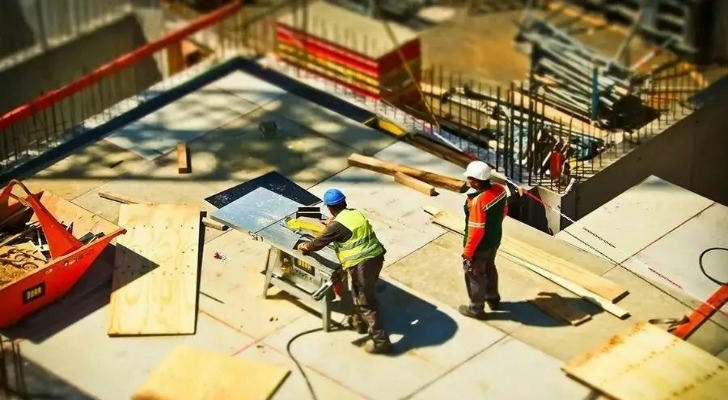Master a Trade: Hands-On Construction Training for a New Career Path
In the ever-evolving landscape of modern society, the construction industry stands as a testament to human ingenuity and progress. From the cozy homes we live in to the skyscrapers that define city skylines, every building is a testament to meticulous planning, skilled craftsmanship, and relentless dedication. Behind these marvels are the unsung heroes of the construction industry—skilled workers who transform blueprints into reality. If you have a passion for creation, a desire to see your work come to life, and an interest in a career that offers endless opportunities for growth and fulfillment, then construction training could be your ticket to a rewarding future.

Why Pursue Construction Training?
A High-Demand, Essential Profession
Construction is the backbone of our built environment, from the homes we live in to the skyscrapers that define city skylines. Skilled construction workers are in constant demand to build, repair, and maintain structures of all kinds. As urbanization continues and infrastructure projects expand, the need for construction professionals remains strong.
With growing investments in sustainable building practices, smart cities, and the renovation of aging infrastructure, construction workers are needed more than ever. The demand for construction professionals is projected to remain robust as new projects are launched and experienced workers retire, making this a secure and future-proof career choice.
Hands-On, Practical Skills
Construction work is highly hands-on, offering a tangible sense of accomplishment with each project completed. Training programs emphasize practical experience, allowing you to work directly with building materials, tools, and safety equipment. Whether you're laying the foundation for a new building, installing windows, or finishing interiors, each task provides a sense of achievement and problem-solving satisfaction.
Learning construction isn't just about hammering nails and pouring concrete—it's about understanding complex building systems and ensuring they are constructed safely and efficiently. The more hands-on experience you gain, the more confident you'll become in handling real-world construction projects.
What You’ll Learn in Construction Training
Construction Theory and Safety
Understanding construction theory is the foundation of any good training program. You’ll learn about:

- Building Materials and Properties: The characteristics and uses of different materials like wood, concrete, steel, and composites.
- Blueprint Reading and Project Planning: How to interpret construction drawings and understand project specifications.
- Construction Codes and Safety Standards: Ensuring compliance with regulations to prevent accidents.
- Protective Equipment: Using hard hats, safety harnesses, and other gear to ensure a safe working environment.
Safety is a major component of construction training, as working on construction sites carries inherent risks. A proper training program will teach you how to minimize hazards and ensure a safe working environment.
Building Techniques and Tools
A significant part of construction training focuses on the practical skills needed for building and installing structures. You’ll learn:
- Framing and Carpentry: Techniques for constructing the skeletal framework of buildings.
- Masonry and Concrete Work: Skills for laying bricks, blocks, and pouring concrete.
- Plumbing and Electrical Basics: Understanding the fundamentals of installing pipes and wiring.
- Roofing and Siding: Methods for installing roofs and exterior coverings.
By working with real construction materials and tools during training, you’ll develop the confidence to handle building tasks efficiently and safely.
Maintenance and Renovation
Construction systems require ongoing maintenance to ensure longevity and safety. Training will cover how to:
- Identify and Fix Common Structural Issues: Diagnosing problems in foundations, walls, and roofs.
- Use Diagnostic Tools: Learning to work with levels, moisture meters, and other inspection tools.
- Perform Preventative Maintenance: Checking structures for wear and potential failures before they cause problems.
- Work with Modern Building Technologies: Renovating older buildings with smart home and energy-efficient solutions.
Career Opportunities for Construction Workers
After completing construction training, a variety of career paths become available, including:
- Apprentice Builder: Gaining real-world experience under a licensed contractor.
- Journeyman Builder: Working independently on residential or commercial projects.
- Project Manager: Supervising large-scale construction projects and managing teams.
- Specialist Tradesperson: Focusing on areas like plumbing, electrical work, or masonry.
- Renovation Expert: Specializing in the restoration and modernization of existing structures.
Construction workers also have the opportunity to work in union positions, government contracts, or even start their own businesses, giving them control over their career growth and earnings.
How to Get Started
To begin a career in construction, look for a training program that combines classroom learning with hands-on experience. Many vocational schools, technical colleges, and apprenticeship programs offer structured training that covers both foundational knowledge and practical application.
Some key factors to consider when choosing a program:
- Accreditation: Ensure the program is recognized by industry standards.
- Hands-On Training: Look for programs that offer real-world practice with construction materials and tools.
- Pathway to Certification: Many programs prepare you for licensing exams required to work as a construction professional.
- Job Placement Assistance: Some programs help graduates find apprenticeships or entry-level positions.
Summary
Construction training is an excellent investment in a career that offers stability, growth, and high demand. Whether you’re interested in residential, commercial, or industrial construction, mastering this trade opens the door to numerous opportunities. With the right training, you’ll gain the skills and confidence to build a rewarding career in an essential industry. The construction sector is not just about building structures—it’s about shaping communities and creating a lasting impact. If you’re ready to take the first step towards a fulfilling career, consider enrolling in a construction training program today.
